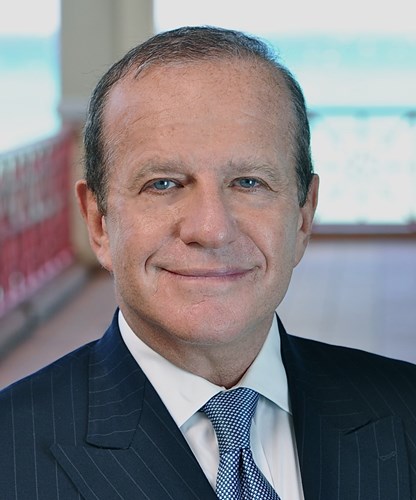Jurisdictions
- Bermuda
- Guernsey
- Bahamas
- Barbados
- Seychelles
- Liechtenstein
- Singapore
- British Virgin Islands
- Hong Kong
- Luxembourg
- Antigua
- Switzerland
- Cayman Islands
- Nevis
- New Zealand
- Belize
- Netherlands
- Ireland
- United Kingdom
- United Arab Emirates
- Mauritius
- Jersey
- Labuan
- Rwanda
- Gibraltar
- Marshall Islands
- Samoa
- Panama
- St Vincent & The Grenadines
- Austria
- Madeira
Industry Sectors
- Hedge Funds and Alternative Investments
- Citizenship and Residency
- International Tax Planning
- Islamic Finance
- Fintech
- Insurance/Reinsurance
- Investment Funds
- Trusts And Foundations
- Private Banking
- Wealth Management
- Philanthropy
- Offshore Securities Markets
- Sustainable Finance
- Family Offices
- Arbitration
- Regulation and Policy
- Comment
- Big Debate
- In the Chair
- Global Regulation & Policy
- Features
- Sector Research
- Jurisdictions
- British Virgin Islands
- Cayman Islands
- Belize
- Bahamas
- Guernsey
- Switzerland
- Bermuda
- Barbados
- Singapore
- Hong Kong
- Luxembourg
- Labuan
- Jersey
- United Arab Emirates
- Ireland
- New Zealand
- Netherlands
- Liechtenstein
- Mauritius
- Antigua
- Rwanda
- Austria
- Seychelles
- Anguilla
- Samoa
- Marshall Islands
- Gibraltar
- Nevis
- United Kingdom
- North America
- Canada
- Asia
- Africa
- Latin America
- Australasia
- Europe
- Industry Sectors
- Hedge Funds and Alternative Investments
- Citizenship and Residency
- International Tax Planning
- Islamic Finance
- Fintech
- Insurance/Reinsurance
- Investment Funds
- Trusts And Foundations
- Private Banking
- Wealth Management
- Philanthropy
- Offshore Securities Markets
- Sustainable Finance
- Family Offices
- Arbitration
- Regulation and Policy
01/09/18
From In the Chair
In the Chair: Anthony Travers, Travers Thorp Alberga

Are publicly accessible registers of beneficial ownership coming to the Cayman Islands, the BVI and Bermuda? How strong are political ties between the UK and the British Overseas Territories currently? The IFC Economic Report invites Anthony Travers to discuss Westminster’s public register demands and asks if existing tensions could result in a push by some of the Overseas Territories to break away from Britain.

IFC: What is the main impetus behind the UK parliament’s decision to (effectively) ‘force’ a public register of beneficial ownership on some of the British Overseas Territories before the end of 2020? The Economist suggested that the poisoning of Sergei Skripal, a Russian ex-spy in Salisbury hastened this move. Do you agree?
Anthony Travers: We may never know with certainty what the UK legislators were thinking in trying to extend this UK money laundering legislation on companies, trusts and partnerships to the Cayman Islands and other Overseas Territories. Very possibly, for the reasons mentioned below, they were not thinking at all. If they were, they lacked the intellectual capacity to distinguish between illegitimate secrecy and the legitimate right to privacy. No doubt the United Kingdom and the United States have become the jurisdictions of choice for the acquisition of trophy assets by money launderers and indeed, Russian oligarchs. But no one can connect the dots and create a sensible picture between the alleged poisoning of Sergei Skripal and the issue of public registers.
The only incontrovertible conclusion that can be drawn is that the UK legislators, led by Dame Hodge and Andrew Mitchell had marginal to no understanding of how the anti-money laundering legislation works in jurisdictions like the Cayman Islands. Nor, clearly, have they spent any time at all researching the effectiveness of the legislation. Had they done so, they would have concluded that the initiative to extend the UK system of public beneficial ownership, as it exists in the United Kingdom to the Overseas Territories, would be entirely counterproductive.
The legislation in the Cayman Islands is entirely distinct from that of the UK. Every service provider has an obligation to ensure that verified – and by this we mean, documented evidence of 10 per cent beneficial ownership – is collected for every such owner through intermediary vehicles, and for every company, partnership and trust. This information is available to law enforcement and tax authorities, but not to the public. By comparison, the UK system (which the initiative has sought to extend) is nothing short of a farce. It is self-certified in circumstances where there is no person or organisation to verify the information, and currently extends to no more than 1.3 of the 3.5 million registered at Companies House.
To seek to wreck a highly efficient system with the imposition of an inferior mechanism is legislative recklessness of a high order. But it is a good deal worse than that. Suggestions that public beneficial ownership registries will become the global standard are risible. Admittedly, some comfort may have been drawn by the EU Fifth Money Anti-Money Laundering Directive, which seeks to extend public beneficial ownership registers across Europe and extends the proposed legislation to companies and trusts and beyond ‘interested persons’, but no-one in Europe has reconciled these provisions with the right to privacy established by the European Convention on Human Rights, or with the new data protection legislation. Indeed, the EU Commissioner for Data Protection has indicated in clear terms that these legislative initiatives are incompatible. It can be said with absolute certainty that no such incompatibility will arise in the United States where the Fourth Amendment right to privacy protection will remain inviolable, and no less so should Senator Biden succeed President Trump, since the good Senator represents none other than the state of Delaware.
US lawyers have not been slow to recognise and capitalize on the new secrecy arbitrage. Work flows that may otherwise have been subject to the transparent system operating in the Cayman Islands and the other Overseas Territories (a transparency which now extends to every recipient of income or gains through Cayman Islands structures pursuant to FATCA and the Common Reporting Standard), have been redirected to the US jurisdictions by lawyers and fiduciaries who have not been slow to market the complete opacity of US vehicles established in the states of Nevada, Wyoming, South Dakota and Delaware. Dame Hodge, Andrew Mitchell, and the UK legislators involved, bear the responsibility for this blundering, which is entirely attributable to their naïve acceptance of the false and negative narrative about the Overseas Territories, which is routinely spouted by the extreme high-tax left wing NGOs, and readily promoted by The Guardian and the BBC.
IFC: Why does the amendment apply to the Overseas Territories but not the Crown Dependencies?
Anthony Travers: The simple answer to this is that it is for no good reason, although it is true to say that the Crown Dependencies, and Jersey in particular, have infinitely superior public relations and marketing operations if compared to the Cayman Islands whose public relations endeavours are virtually non-existent.
No doubt, the constitutional basis of the Crown Dependencies is also distinct from that of the Cayman Islands, the constitution of which is based on the West Indies Act, but, ultimately, the British government – to the extent that it has such authority at all – has the legislative ability to act in relation to both the Crown Dependencies or the Overseas Territories.
IFC: Does the UK have the right to exercise this sort of power, or is this a violation of Britain’s conventional constitutional relationship?
Anthony Travers: This is the core question which the Premier of the Cayman Islands has made it plain will be litigated. The Sovereign in Parliament is inviolable but it is clear from Barclay (No.2) and Bancoult (No. 2) that in legislating in and for the Cayman Islands, the act of the Sovereign is distinct – an executive order is subject to judicial review on the grounds of lawfulness, rationality and procedural impropriety. The question, as it is understood by the Wednesbury principle, as referred to in Barclay is: did the Secretary of State act reasonably? Given the likely outcome of trying to impose the inferior UK system on the tried and tested, highly effective Cayman Islands system, it could be argued that such an order would not merely be irrational but grossly negligent.
What, however, has most irritated the Cayman Islands’ legislature is that the Right to Privacy, which these new UK proposals seek to override, is enshrined in s.9.3 of the Cayman Islands Bill of Rights, itself a part of the Cayman Islands constitution. This right to privacy in legitimate affairs was relied upon by investors in Cayman Islands structures. The constitution was carefully negotiated with the UK Secretary of State and enacted in the Cayman Islands after approval in a national referendum in 2009 and is the supreme law in the Cayman Islands. There exists a very specific convention that has been time honoured by the British government in introducing amendments to the Cayman Islands constitution. It is unacceptable to suppose that, on a day-to-day basis, a renegade group of UK MPs with marginal to no understanding of the constitutional law position in the Cayman Islands and the rights it confers, can effect an amendment to the Cayman Islands’ constitution through a back door. It seems probable to conclude that advice in all this had been sought from the Foreign and Commonwealth Office. It cannot be a coincidence that the new UK parliamentary report, Moscow’s Gold: Russian Corruption in the UK, describes the level of Russian investment as a ‘risk to national security’, given that ‘national Security’ and ‘foreign relations’ were grounds which the Supreme Court used to support the exercise of UK executive power to override the interests of the Chagos Islanders in Bancoult (No.2). Here though, we say ‘national security’ must mean the national security of the Cayman Islands.
IFC: Should the British Overseas Territories have their own representatives in UK parliament?
Anthony Travers: Whilst there are some superficial attractions to the proposition (‘No legislation without representation’), there will be little practical benefit in one or two Cayman Islands representatives sitting in the House of Commons and, not incidentally, otherwise creating a new ‘Lothian’ question. Those charged with speaking for the Overseas Territories in the current debate were ignored. The simple fact is that any such suggestion is counter to trend. Evidently enough, the lesson we take is that the Cayman Islands must move towards greater self-determination.
IFC: How do the Overseas Territories and Crown Dependencies’ transparency laws compare to those applied by the City of London, or onshore financial centres more generally?
Anthony Travers: As mentioned above, Cayman Islands service providers are under statutory obligations, including fines and imprisonment, for ensuring strict adherence to the highest standards of due diligence, know-your-client and source of funds enquiry, the results of which must be documented and subject to inspection. It is submitted – in the light of any evidence to the contrary – that no further or different or superior standards should, or could be of application. These standards have been reviewed positively in practice by the Financial Action Task Force. The foregoing systems in operation in the Overseas Territories greatly exceed the standards applied in the City of London and cannot be compared to those in the United States where no such similar systems exist.
IFC: BVI Premier Orlando Smith called the imposition of public registers a “breach of trust” that “calls into question our very relationship with the UK.” Could some of the Overseas Territories take steps toward greater independence from the UK and what would this look like in practice?
Anthony Travers: The reserved powers under s.125 of the constitution of the Cayman Islands (and the BVI has similar provisions) are exercisable by the Secretary of State and are limited to orders for the ‘peace, order and good governance of the overseas territory in question’. Not incidentally, art.73 of the United Nations Charter requires the mother territory to hold the interests and wellbeing of the inhabitants of the dependent or overseas territory on a ‘sacred trust’. It is, therefore, little wonder that Mr Orlando Smith describes this renegade action of the Houses of Commons and Lords as a ‘breach of trust’. It is now public information that the Cayman Islands government will seek not only to challenge the application of the UK Sanctions and Money Laundering Act 2018 to the Cayman Islands, but will seek constitutional advancement to remove the reserved powers. And, if so, the net result of this ill-considered legislative overreach will be counterproductive from the UK respective.
IFC: Should the UK be pushing for greater integration with the Crown Dependencies and the Overseas Territories to compensate for the costs of Brexit?
Anthony Travers: The attempt to extend the public beneficial ownership legislation of the Cayman Islands is not merely counterproductive in terms of the fight against money laundering; it is also entirely counterproductive to what ought to be the interests of the British government post Brexit. The unfortunate consequence of swallowing the ridiculous left-wing narrative concerning tax evasion and avoidance in the Overseas Territories is that the importance of the Overseas Territories in terms of onwards investment into onshore jurisdictions like the United States and the United Kingdom (where those monies are, not incidentally, taxed in accordance with the profits and gains made under the laws of those jurisdictions) has been lost. Cayman Islands companies, partnerships and trusts probably invest some US$4 trillion into onshore jurisdictions (the percentage of which, in relation to the United Kingdom, has dropped dramatically since the introduction of ill-advised European legislation concerning hedge fund vehicles). But that inward investment generates tax revenue which pays for essential welfare benefits in jurisdictions like the United Kingdom. Had UK legislators properly recognised the benefit of attracting that investment from jurisdictions like the Cayman Islands, the position of the United Kingdom treasury post Brexit could have been substantially enhanced with legitimate inward investment. The mischaracterisation of the Cayman Islands – that has been accepted by UK legislators hook, line and sinker – and the ill-informed commentary that is generated as a result, runs entirely contrary to that outcome.
IFC: How does the future look for offshore financial centres such as the BVI, the Cayman Islands and Bermuda?
Anthony Travers: These jurisdictions serve a purpose in international capital flows which is dependent on their superior legislation and the structuring of complex investment vehicles for pooling investor funds. It is highly unlikely that this proposed legislation will be extended to the Cayman Islands as intended, but if it were, whilst no doubt certain international capital flows will be redirected through US domiciled vehicles, the need for sophisticated offshore structuring is unlikely to be significantly diminished.
About the Author

Anthony Travers OBE Anthony Travers OBE is the Senior Partner of Travers Thorp Alberga, former Chairman of Cayman Finance and former President of the Cayman Islands Law Society. The former Managing and Senior Partner of Maples and Calder, he has extensive experience in all aspects of Cayman Islands law and has worked closely with the Government and prepared the Cayman Islands legislation for Mutual Funds and Private Equity vehicles, in the Private Trusts area, the Asset Protection Legislation and drafted the Cayman Islands Stock Exchange Law. Anthony was made an Officer of the Most Excellent Order (OBE) for his services to the Government and the Financial sector in August 1998. Anthony has written numerous articles and has spoken regularly at conferences and seminars.


